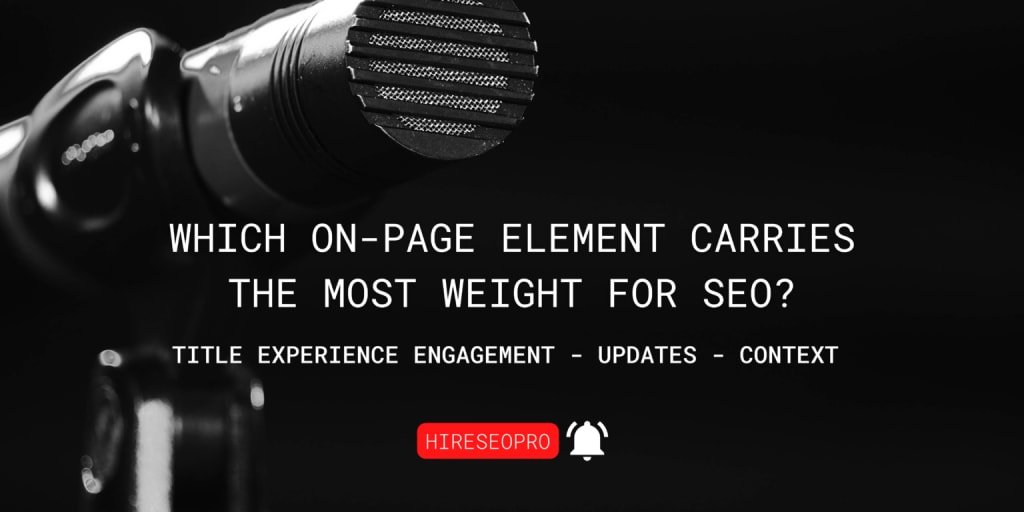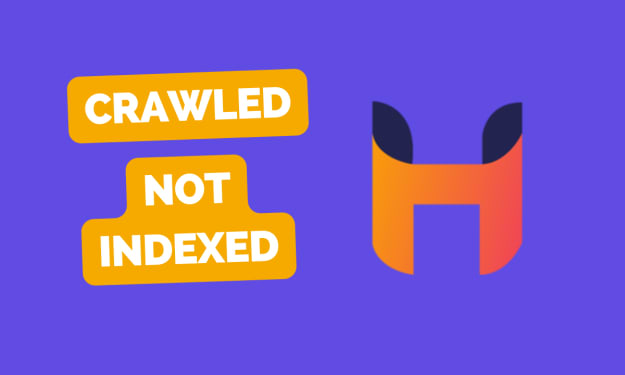Which On-Page Element Carries the Most Weight for SEO
Understanding On-Page Optimization

Introduction
Search Engine Optimization (SEO) plays a crucial role in improving a website's visibility and ranking on search engine results pages (SERPs). While there are numerous factors that contribute to a successful SEO strategy, on-page optimization is a fundamental component. On-page elements encompass various factors that directly impact a website's search engine rankings. In this article, we will explore which on-page element carries the most weight for SEO, shedding light on its significance and offering insights for optimizing this element to maximize SEO success.
Understanding On-Page Optimization
On-page optimization involves optimizing individual web pages to improve their visibility on search engines. This process focuses on factors that webmasters have direct control over, such as content, meta tags, headings, URL structure, and internal linking. Each on-page element plays a role in how search engines perceive and rank a website. However, one particular on-page element carries significant weight and can have a substantial impact on SEO services in jaipur
The Power of Content
When it comes to on-page elements, content is king. High-quality, relevant, and engaging content has long been considered the backbone of successful SEO strategies. Search engines, like Google, prioritize delivering valuable and informative content to their users, making it the most crucial on-page element for SEO.
Search engines utilize complex algorithms to evaluate and rank websites based on their content. These algorithms analyze factors such as keyword relevance, originality, comprehensiveness, and user engagement metrics to determine the value and usefulness of the content. Websites that provide valuable and authoritative content tend to rank higher on SERPs
Keyword Optimization
One of the key aspects of content optimization is keyword integration. Keywords are specific terms or phrases that users enter into search engines to find information. Strategically incorporating relevant keywords into your content signals to search engines that your website is relevant to those queries.
However, it's essential to maintain a balance and avoid keyword stuffing, which is the excessive and unnatural use of keywords in an attempt to manipulate search engine rankings. Instead, focus on creating high-quality content that naturally incorporates relevant keywords in a way that provides value to users Offshore Marketing Services
Content Relevance and Depth
Search engines assess the relevance and depth of content to determine its value for users. Ensuring that your content is closely aligned with the intent behind search queries helps search engines understand its relevance. Conduct thorough keyword research to identify the terms and phrases users are using to find information related to your website's topic.
Moreover, creating comprehensive and in-depth content that covers the topic comprehensively positions your website as a reliable source of information. Detailed and well-researched content often attracts more backlinks and shares, which further enhances its SEO potential
User Experience and Engagement
Apart from the textual aspects of content, search engines also take user experience and engagement metrics into account. Factors like bounce rate, time on page, click-through rate, and social signals contribute to evaluating the quality of a website's content.
To optimize for user experience, make sure your content is easily readable, well-structured, and visually appealing. Break up the text with subheadings, bullet points, and relevant images to enhance readability. Additionally, ensure your website is mobile-friendly, as an increasing number of users access the internet through mobile devices
Technical Optimization
While content carries the most weight for SEO, technical optimization cannot be overlooked. Elements such as meta tags, headings, URL structure, and internal linking contribute to a website's overall SEO performance.
Meta tags, including the title tag and meta description, provide concise summaries of a webpage's content and play a role in attracting users to click on search results. Well-optimized meta tags improve click-through rates and can indirectly impact rankings.
Proper usage of headings (H1, H2, H3, etc.) helps search engines understand the structure and hierarchy of your content. Well-structured headings not only improve readability but also provide signals to search engines about the most important topics on a page.
URL structure should be concise, descriptive, and include relevant keywords. A clear URL structure enhances user experience and helps search engines understand the content of a webpage more easily.
Internal linking, or linking to other pages within your website, helps search engines discover and crawl your content more effectively. It also helps to establish relationships between pages, distribute link equity, and improve user navigation.
Conclusion
While there are various on-page elements that contribute to a website's SEO performance, content stands out as the most influential factor. High-quality, relevant, and engaging content serves as the foundation for successful SEO strategies. By focusing on keyword optimization, content relevance and depth, user experience, and technical optimization, webmasters can enhance their content's visibility, attract organic traffic, and improve search engine rankings. Remember, providing value to users should always be the primary goal, as search engines strive to deliver the most valuable content to their users.
About the Creator
Narendra Prajapat
I'm Narendra Prajapati working as an SEO Specialist at Hire SEOPro. I have more than 4+ years of experience in search engine optimization & manual link building.






Comments
There are no comments for this story
Be the first to respond and start the conversation.